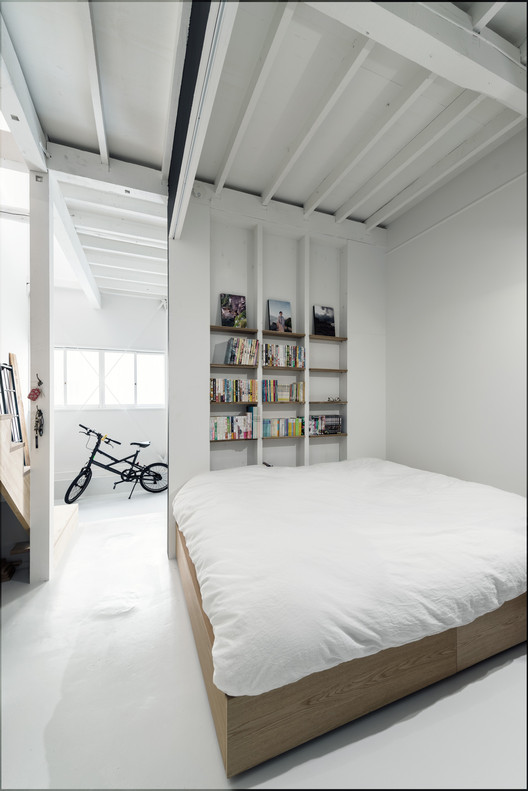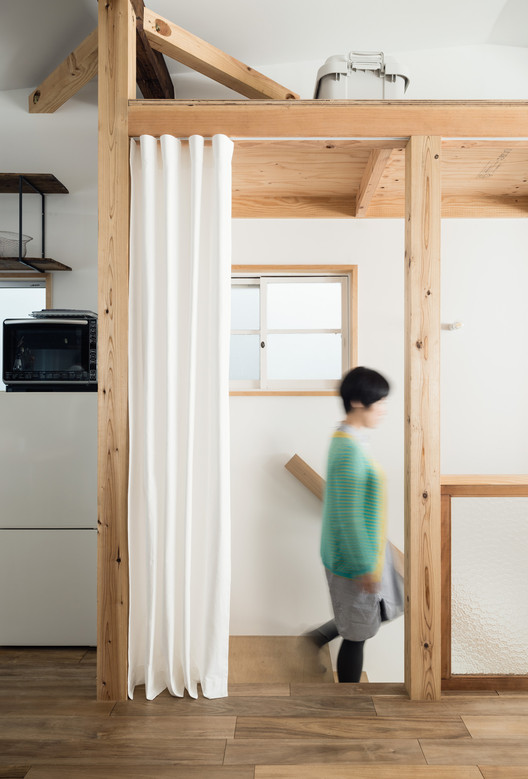
-
Architects: Coil Kazuteru Matumura Architects
- Area: 33 m²
-
Photographs:Yoshiro Masuda
Text description provided by the architects. This is a situation of owning a house with the attributes of being in the "center of downtown", "a renovation of an old house" and "a connected town house". This is opposed to the more common houses in Japan, which is usually, "rural", "newly built" and "detached".

Toyosaki is a town located in a 15 minute walking distance from Umeda station, a main hub of transportation in North Osaka. It is also a 10 minute walking distance to the nearest subway station and is therefore, very convenient. In the area, there is a main street but also back streets where these older connected town houses exists.

The owner bought an old house and there is not much information about when or who built the house. The only thing we could find was that the house was renovated in the same year as when the Olympics was held in Tokyo: 1964.

Design development took place after the demolition of the interior walls in order to access the condition of the existing structures/MEP. The structure was enhanced to meet the latest code requirements. Also, the insulation was replaced to achieve equivalent quality of new houses as to meet the 4th grade energy saving performance evaluation program requirements in Japan.

The finishes and layout were determined with a positive measurement. The toilet and the bathroom were the only spaces where doors were installed. The other spaces are softly divided by curtains in order to leave the option of having these areas either open or closed.

The entrance has a luxury space considering the total size of the house, as the ceiling of the staircase is an open design.

These were achieved to minimizing the wall/door construction cost. In addition, this achieved in optimizing the space utilization by connecting the floors as the total overall space is limited.

In opening up and connecting the space, the old doors and flooring, kept when the house was demolished, were reused by changing the functions and locations of them.

Storage is basically managed by having many ways to show and display personal items, life and hobbies of the owner.

The key intention of the project is to softly surround a new couple's life with a small connected town house that has a main structure with a long history.


























